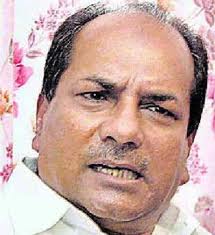New Delhi, Aug 6: Defence minister AK Antony's statement on killing of five Indian soldiers in Poonch on Tuesday sparked of a controversy because he described the intruders as "terrorists along with persons dressed in Pakistan army uniform" while an Army spokesman said "soldiers from Pak Army" were involved.
Making a suo motu statement in both the Houses of Parliament, Antony said an Indian Army patrol, comprising one junior commissioned officer and five other ranks, was "ambushed on our side" of the LoC in Poonch sector of Jammu and Kashmir.
"The ambush was carried out by approximately 20 heavily-armed terrorists along with persons dressed in Pakistan army uniform," Antony said.
Defence spokesman, Jammu, S N Acharya said the Indian Army patrol was ambushed by a Pakistan Border Action Team(BAT).
"A patrol of Indian Army comprising one non-commissioned officer and five other ranks was ambushed by a Pak Border Action Team (BAT) close to the line of control in Poonch Sector of J&K early morning", he said in an official statement.
"In the ensuing firefight, five Indian soldiers were martyred. The ambush was carried out by approximately 20 heavily armed terrorists along with soldiers of Pak Army," he said.
Antony's remarks about involvement of terrorists in the attack triggered angry reactions in Parliament by opposition parties, which said it amounted to giving an "escape route" to Pakistan which already claims that its army is not involved.
Leader of the opposition Arun Jaitley termed Antony's statement as "ambiguous" and took a dig, saying that he hoped it was a "typographical error".
Linking it to the Sharm-el-Sheikh episode of 2009 when the mention of Balochistan was found in India-Pakistan joint statement, the BJP leader said that by saying terrorists attacked "you are almost providing in this sentence an opportunity to Pakistan to say that they were non-state actors. It provides escape route to Pakistan, which always says not army but non-state actors" are behind such attacks.
However, Antony stuck to his version, saying "my statement is based on confirmed reports received till the time I made the statement. At this stage we don't want to jump to any conclusion."
BJP activists protest in front of Antony's house
BJP supporters held a demonstration outside defence minister AK Antony's residence here demanding a strong response by the government against killing of of five Indian soldiers on the line of control.
The BJP supporters raised slogans demanding that a strong message be sent to Pakistan that such incidents will not be tolerated.
Police used water canons to disperse the demonstrators who tried to break barricades while trying to approach towards Antony's official residence at 9, Krishna Menon Marg in central Delhi.





Comments
Add new comment